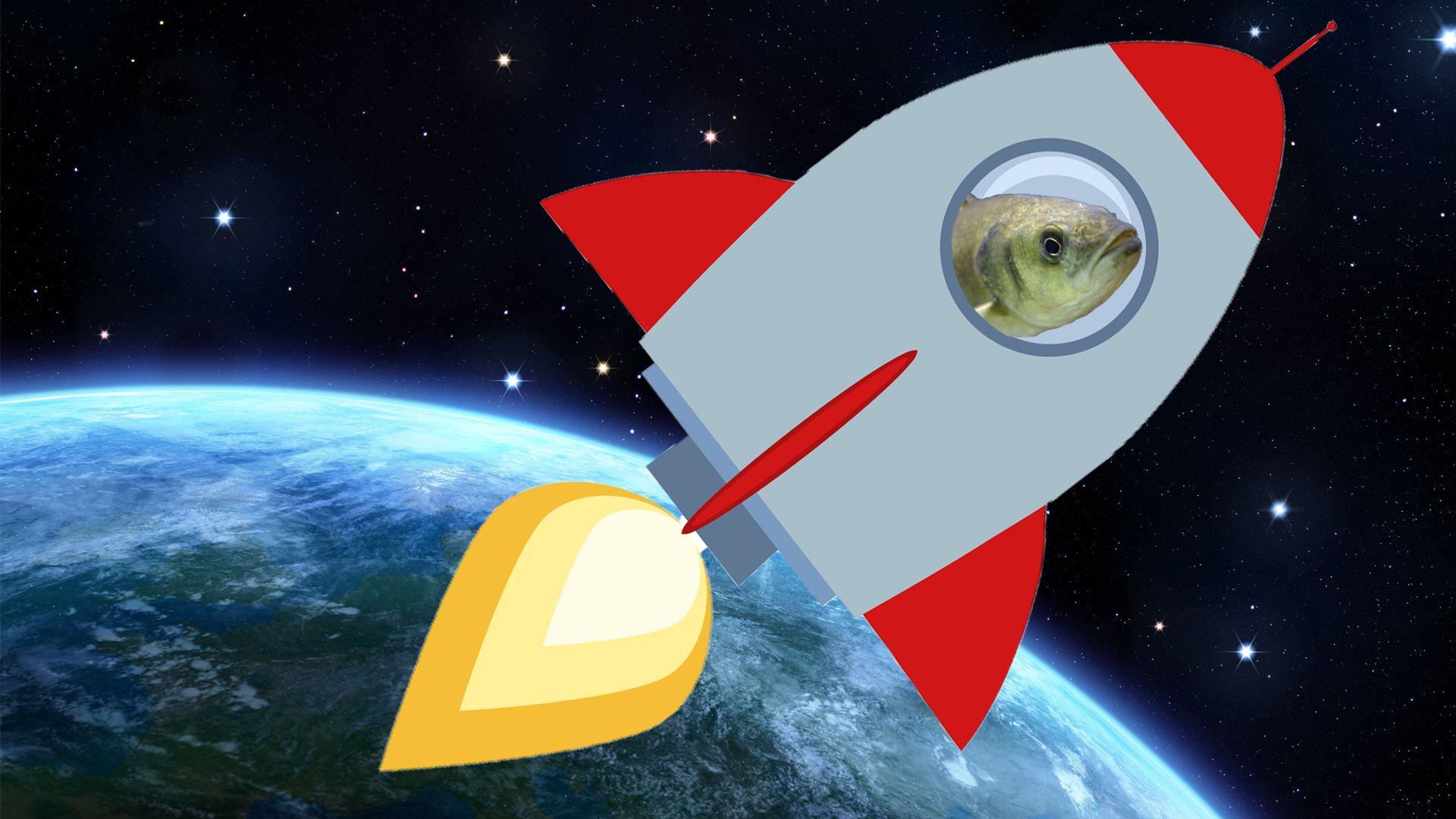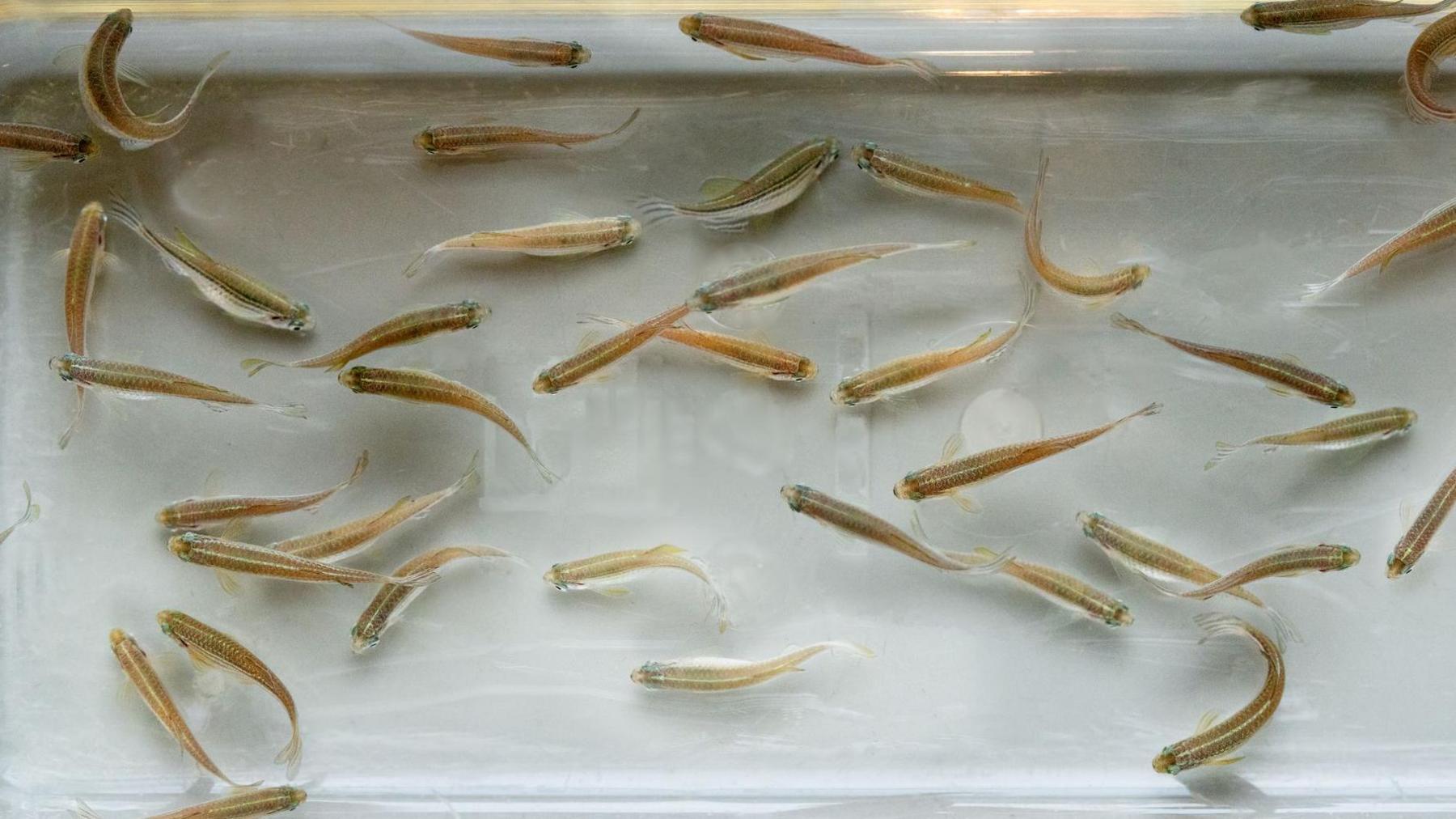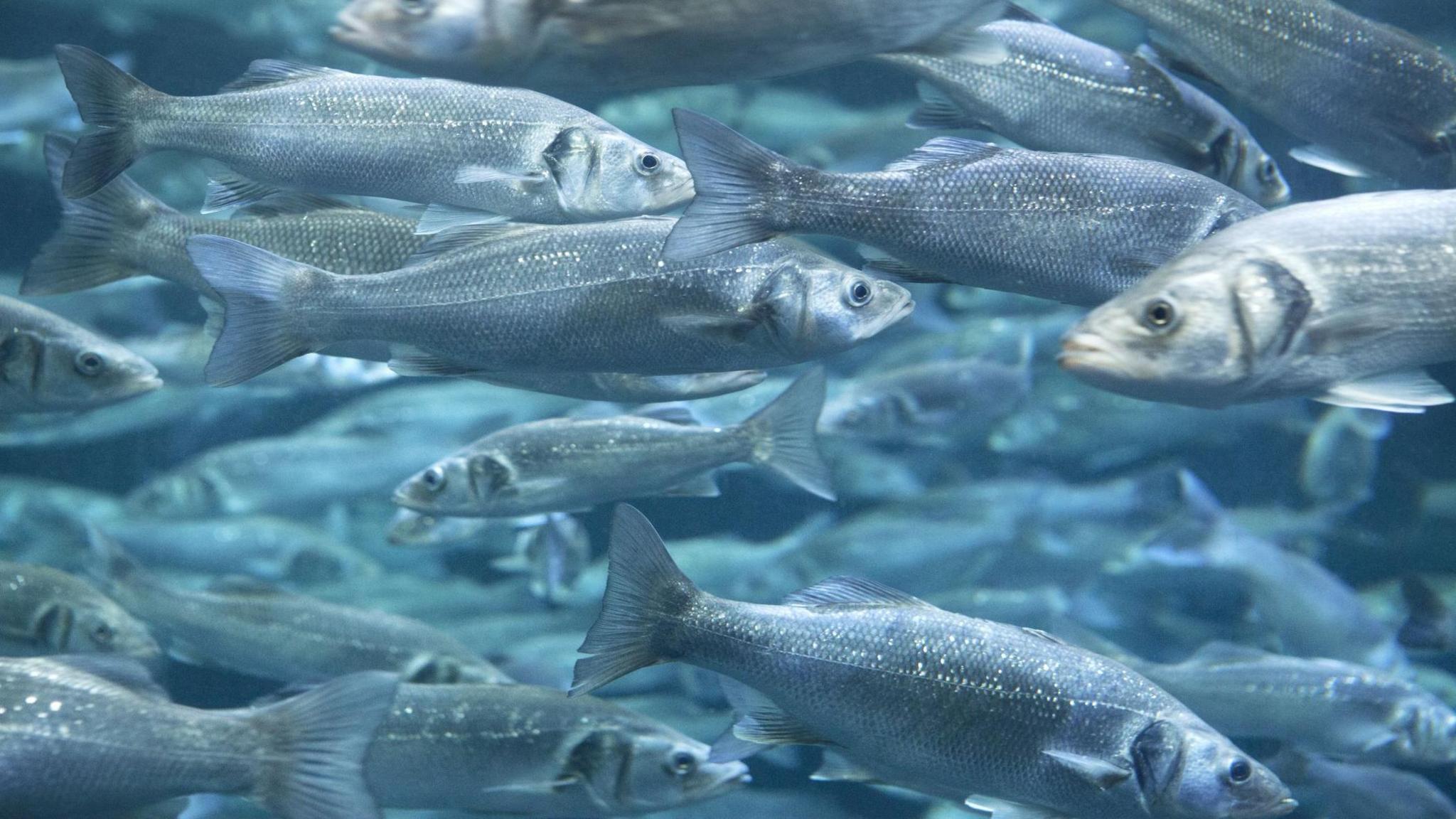Could astronauts farm fish in space?

- Published
Astronauts have been able to successfully grow tomatoes, lettuce and potatoes in space, but could they soon be farming fish too?
Yep that's right, fish in space! It might sound crazy but it could be closer than you think.
For the last few years Dr Cyrille Przybyla - a researcher in marine biology for the French National Institute for Ocean Research - and a team of researchers have been working on a project called Lunar Hatch.
The project was one of the ideas chosen by the European Space Agency (ESA), who were looking for ideas for a future base on the Moon.
They wanted to find ways to make sure that people living on the Moon base had a long-term and sustainable way to make food (as they couldn't keep shipping up food packets) that would give them the nutrition their bodies need.
Space food: Experts try to work out how to feed astronauts in space
- Published28 April
Which of your favourite foods would you take to space?
- Published5 February
Why fish?
Take a look at some other ideas for how to feeds astronauts long-term in space
Fish was suggested as an option because it's a source of protein, and has omega-3, and B vitamins which are good at taking care of the body's muscles in space.
Rather than sending full-sized fish into space, Dr Przybyla suggested they could send 200 fish eggs, and wait for them to hatch and grow to full size in space.
Over the last few years Dr Przybyla has been carrying out tests in a laboratory in France, to see if sea bass eggs are able to withstand the shaky rocket journey and conditions in space, from cosmic radiation to weightlessness.
So far he says the results have been positive, and now they are waiting for the all-clear from CNES and NASA's Kennedy Space Center, to try out the experiment in space for real.
Fish in space, how would it work?

Zebrafish like these were sent up to space to live on the Tiangong space station
Fish in space might sound crazy, but some have already been to space!
The first aqua-stronauts were reportedly tiny mummichog fish, who took a trip into orbit on an Apollo mission in 1973.
They were followed by a tank of guppies three years later, accompanied by two Soyuz astronauts in the Salyut Soviet space laboratory.
In 2015, zebrafish were sent to the ISS to investigate how muscles atrophy in microgravity, and in April last year the Chinese sent several zebrafish to its Tiangong space station.
However, Dr Przybyla's experiment would be the first time fish would have been kept long-term for farming reasons.
How would it work?

Dr Przybyla said that Lunar Hatch's mission is to create a "closed-loop food chain" on the Moon, which means it can pretty much take care of itself.
He explains there would be different compartments in the fish tank which would be filled with water melted from ice found in craters on the Moon's surface.
The wastewater made by fish in these tanks would be used to grow micro-algae that can then be used to feed tiny creatures like bivalves, or zooplankton who would help to filter some of the waste.
The sea bass's poo would be tidied up by creatures like shrimps and worms, who would also be food for the fish.
Dr Przybyla's idea is one of many ideas suggested by scientists to create sustainable, long-term ways to make food in space.
